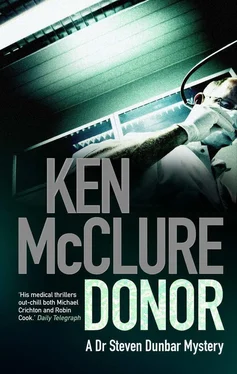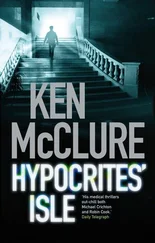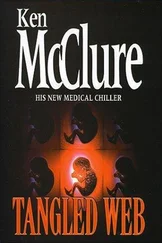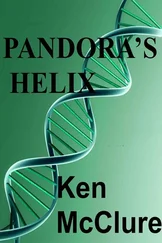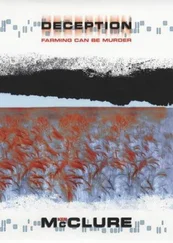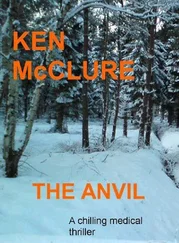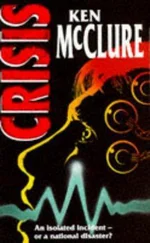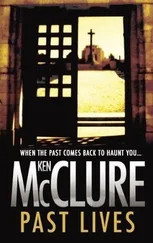Ken McClure - Donor
Здесь есть возможность читать онлайн «Ken McClure - Donor» весь текст электронной книги совершенно бесплатно (целиком полную версию без сокращений). В некоторых случаях можно слушать аудио, скачать через торрент в формате fb2 и присутствует краткое содержание. Жанр: Триллер, на английском языке. Описание произведения, (предисловие) а так же отзывы посетителей доступны на портале библиотеки ЛибКат.
- Название:Donor
- Автор:
- Жанр:
- Год:неизвестен
- ISBN:нет данных
- Рейтинг книги:4.5 / 5. Голосов: 2
-
Избранное:Добавить в избранное
- Отзывы:
-
Ваша оценка:
- 100
- 1
- 2
- 3
- 4
- 5
Donor: краткое содержание, описание и аннотация
Предлагаем к чтению аннотацию, описание, краткое содержание или предисловие (зависит от того, что написал сам автор книги «Donor»). Если вы не нашли необходимую информацию о книге — напишите в комментариях, мы постараемся отыскать её.
Donor — читать онлайн бесплатно полную книгу (весь текст) целиком
Ниже представлен текст книги, разбитый по страницам. Система сохранения места последней прочитанной страницы, позволяет с удобством читать онлайн бесплатно книгу «Donor», без необходимости каждый раз заново искать на чём Вы остановились. Поставьте закладку, и сможете в любой момент перейти на страницу, на которой закончили чтение.
Интервал:
Закладка:
Lisa’s eyes were sparkling with excitement. ‘You’re right,’ she said. ‘That’s exactly what must have happened. But why?’
‘Let’s see. A donor organ becomes available; Medic Ecosse obtains it from the source hospital… but instead of giving it to the patient, they use him or her for one of their animal experiments.’
‘And if it goes wrong, they cover their tracks by substituting the correct one at post-mortem!’ said Lisa.
‘But how do we go about proving it?’
There was a long silence.
‘Let’s eat first,’ said Dunbar, picking up his knife and fork. ‘We’re doing okay.’
They didn’t talk much as they ate, largely because they were both deep in thought. They reached the coffee stage still without coming up with any good idea as to how to prove their theory. It was, however, early days and both of them were pleased about having solved the first bit of the puzzle.
As they left the hotel and wandered down to the jetty to take a look at the lake in the frosty moonlight, Dunbar said, ‘Medical researchers are trained scientists, meticulous people, precise in all things. Facts and figures are of paramount importance to them.’
‘What are you getting at?’
‘I don’t think I’ve ever come across a researcher who didn’t keep notes.’
‘So?’ said Lisa.
‘It’s a basic requirement of the job that you keep accurate records of everything you do in order to write up your results for the journals. You also have to be in a position to show data to back up your claims, should the scientific community request it. All your work is subject to peer review.’
‘I still don’t see what you’re getting at,’ said Lisa, snuggling down deeper into her coat.
‘They must have records somewhere.’
‘Secret notebooks, you mean?’
‘More likely to be computer files these days,’ said Dunbar.
‘So if you could get your hands on them you might find all the evidence you needed?’
‘That’s what I’m thinking,’ he agreed. ‘They must have kept records of all the experiments they’ve done, what went right, what went wrong, what their conclusions were, what they’re going to do next.’
‘Makes sense. But how on earth are you going to get your hands on something like that?’
‘Presumably the records are kept somewhere in Ross’s research lab. I’d have to get in there somehow, but nothing has happened to spook the people in the transplant unit. They’ve no reason to be on their guard. I’m sure I can think of a way and once inside I think I’ll be able to lay hands on what I need. If I could hand the police records of experiments involving the kids, I think we could nail them.’
Lisa looked dubious. ‘I don’t think you should rush into this. It could be dangerous. You don’t really know what you’re up against.’
‘They’re not professional criminals,’ said Dunbar. ‘I think we’re talking about a few ambitious bastards who’ve been cutting corners to speed up their research.’
‘But they’ve killed two children and we think they’re also killing a nursing sister and her husband. Don’t you think that’s an unusually high price for even the most ambitious of researchers to contemplate?’
Dunbar had to agree. ‘You think I’m missing something?’
‘I think it’s possible, and I wouldn’t like it to kill you,’ said Lisa.
‘I’ll bear that in mind.’
‘You haven’t had any more thoughts about the isotope, have you?’
Dunbar shook his head. ‘I suppose Medic Ecosse were just too clever and careful to use one that could be traced back to them. They seem to think of everything — including switching the organs in corpses in case anyone should dig them up and examine them.’
‘You’ll get a break soon,’ said Lisa, slipping her arm into his as they turned back to the car park. ‘I can feel it.’
Dunbar phoned Sci-Med first thing in the morning and spoke to Macmillan. ‘Sir, you asked me to reconcile the nurses’ allegations with the pathologist’s findings. I think I can.’
‘Amaze me,’ said Macmillan drily.
‘They switched the organs after death, probably during the post-mortem.’
‘After death?’
‘It’s still possible they’ve been carrying out experiments on children, using animal organs. They wait until a compatible donor organ becomes available for their patient and then obtain it. But they don’t use it; they just keep it as insurance. If their experiment fails, they replace the animal organ with the human one before releasing the body for burial.’
Macmillan said, ‘Good God, what an awful thought. It’s possible, I suppose, but damn nearly impossible to prove I’d have thought.’
‘I’d like to try but I need more time.’
‘But even supposing you’re right, Dunbar, don’t you think they’d have stopped after the first death?’
‘I’m sorry?’
‘Why didn’t they abandon the whole thing after the first patient died? Why would they continue, knowing the experiment was a failure?’
‘Perhaps they believed they’d solved the problem,’ ventured Dunbar.
‘Mmmm,’ said Macmillan, unconvinced.
Dunbar offered no further argument. Lisa had suggested there was more to it than he thought. Macmillan was doing the same. It was just possible they were right.
THIRTEEN
Dunbar went out for a late-night walk. The earlier rain had stopped, leaving the streets wet but the air cold, dry and mercifully still. He pulled up the collar of his overcoat and set out for nowhere in particular. He just needed to think. Darkness and quiet streets were going to help.
Lisa and Macmillan had given him the uneasy feeling that something was wrong with his whole train of thought. It was the feeling you got when, believing yourself to be on the right road to somewhere, you kept on picking up little clues that said you weren’t. At first, you were reluctant to acknowledge them because you wanted to believe nothing was wrong. You could even convince yourself that you were seeing the landmarks you were supposed to see. You simply altered or modified your expectation to suit. Even as evidence to the contrary mounted, you continued to hope against hope that everything was going to work out, because the alternative meant admitting that you were absolutely lost.
He was afraid the same might apply to his thinking about the use of animal organs for transplant at Medic Ecosse. He had come up with a get-out-of-jail card over that one by mooting a switch of organs after death so, in theory, he could still be right. But now, as he thought it through rationally and without emotion, he started to worry. The little clues were there. He had to steel himself to look at them dispassionately.
Lisa had stuck to her guns so tenaciously because Amy Teasdale’s reaction to her transplant had been so strong. As an experienced transplant nurse, she just couldn’t believe that Amy had been given the right organ. The same was true of Sheila Barnes and her patient, Kenneth Lineham — another strong reaction. What he had found it convenient to ignore until now was the inference that not only had the organs been unsuitable, but they had not even been close in terms of compatibility.
This was a major puzzle and one he’d have to face up to. Ross wasn’t some Mickey Mouse researcher who’d transplant any old organ into a patient to see what happened. He was an acclaimed expert in the field of transplant immunology. He’d know beforehand, through extensive lab work, exactly what the chances of success were. In fact, it seemed entirely reasonable to assume that he wouldn’t even contemplate carrying out experimental surgery unless he was pretty damned sure of success. Yet there had been two spectacular failures. Why?
Читать дальшеИнтервал:
Закладка:
Похожие книги на «Donor»
Представляем Вашему вниманию похожие книги на «Donor» списком для выбора. Мы отобрали схожую по названию и смыслу литературу в надежде предоставить читателям больше вариантов отыскать новые, интересные, ещё непрочитанные произведения.
Обсуждение, отзывы о книге «Donor» и просто собственные мнения читателей. Оставьте ваши комментарии, напишите, что Вы думаете о произведении, его смысле или главных героях. Укажите что конкретно понравилось, а что нет, и почему Вы так считаете.
